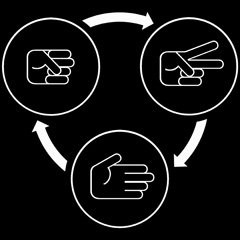2012 Rewind: The secret of not wishing to be anywhere else
Note: I am winding down the last, waning days of 2012 by re-running a few posts from this year that either I liked, were (reasonably) popular, or just didn't get a fair shake the first time around. If that is not your sort of thing, then come back on January 2, 2013 when fresh and tasty content resumes. Thanks for reading in 2012!
This piece, The secret of not wishing to be anywhere else, ran in June and was, I suppose, a bit of response and reflection on feeling pretty tired and a little sick of all the buzz, chatter, and noise that surrounds work and business sometimes. And for what it is worth, this might be my favorite piece I wrote in 2012.
----------------------------------------------------------------------------
The secret of not wishing to be anywhere else
Whether it's during a long meeting at work, standing on the sidelines of a U-7 soccer match in the cold rain when you know you have about 4,120 other things to do, or making small talk in a big room at an event or trade show, most of us at least once in a while, battle with the sometimes intense desire to be somewhere else, or to be doing something else.
Part of this, I think, stems from a kind of achievement at all costs, stay one step ahead of the next guy, keep Tweeting and Tumbr'ing and Instgramming, while simultaneously talking, texting, and making sure your SEO and SEM and mobile optimization strategies are all in place and whirring. There's always something else to do, something else that could be done, something that the next guy is doing that maybe threatens or angers or makes you envious. Whatever. Work, building a business, angling for some better opportunities, trying to raise your profile to get on an internet list or get comped to an event - it can be a pretty exhausting grind. ATL
ATL
Of course there is lots to do, maybe more to do than ever before. Certainly the explosion in platforms and applications that require care and feeding are one reason, and I suppose the degradation (for many folks), in the employee-employer contract or said more plainly, the notion that the next day at any job might be your last, as the spectre of one bad quarter or a decision from a large company to jump in to your market conspiring to make any job in any company seem more temporary and fragile than in recent memory.
So the natural, and I think for the most part correct, response to all this uncertainty, (and also, paradoxically, opportunity), is for professionals to be much more on the hustle, even those with so-called 'real jobs'. There is a lot of chasing going on no doubt, and while the rewards can be really nice for the ones that do it well, and work at the the hardest, certainly all this chasing and hustling and posturing and angling comes with some downside.
First, the nagging feeling that no matter how much one works, there is someone else out there doing just a little bit more. And that's annoying. Second, it is really, really, easy to forget to say 'No' sometimes, and to remember that less is usually more, (and more interesting). And last, it is easy to fall into the trap of feeling no matter where you are and what you're doing, that you've made the wrong, or at least not the best, most bang for your time, SEO-optimized decision and that somewhere else, something fantastic is going on and you're missing it.
The truth is there probably is something better going on. And you are missing it. And there, wherever there is, is one of your peers/friends/competitors thinking the exact same thing.
Have a Great Week!

 Steve
Steve

